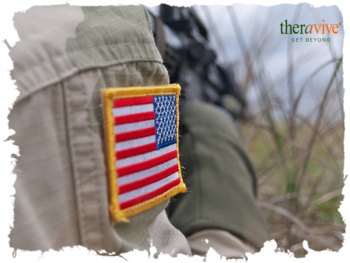 The most preventable cause of death is obesity but it seems
even the military is lightening up on this destructive American trend. In
recent months, challenged with the potential of losing too many viable sailors,
the United States Navy relaxed its body fat restrictions. Those who previously
failed their exams three or more times are now allowed to be tested one more time
under the more lenient standards. (Watson, 2016).
The most preventable cause of death is obesity but it seems
even the military is lightening up on this destructive American trend. In
recent months, challenged with the potential of losing too many viable sailors,
the United States Navy relaxed its body fat restrictions. Those who previously
failed their exams three or more times are now allowed to be tested one more time
under the more lenient standards. (Watson, 2016).
According to the Navy, career saving tactics to meet
previous benchmarks included diet pills, liposuction, and other invasive and
non-invasive measures. Before the criteria adjustment, the Navy reported a
three to one failure rate on sailors who passed the preliminary test. After the
changes, those statistics showed marked improvement as the military aims to advance
recruitment and retention rates.
Lowering Standards or Adjusting to Reality?
A recent Pentagon study established that nearly two-thirds
of the American population would not qualify to enlist in the armed services as
a direct result of obesity, health problems, and inability to get a high school
education (Watson, 2016). In a three-year
span of time from 2011 to 2014, the Navy kicked out more than twice the amount
of sailors - 694 in 2011 to 1536 in 2014.
Navy Secretary Ray Mabus said this move is not lowering
standards but adjusting to reality (Watson, 2016). Part of that adjustment is
the nature of jobs which gear more towards cyber warfare in which weight would
not make a significant difference. For the first time in two decades, the
military also is considering larger uniform sizes.
Military Leaders Asking for Junk Food to be Removed from Schools
In a report entitled Mission:
Readiness, retired American Generals, Admirals, and other senior leaders of
the United Stated Armed Forces aim to do something about what they see as ‘otherwise
excellent recruit prospects, some of them with generations of sterling military
service in their family history, are being turned away because they are just
too overweight’ (Mission: Readiness, Military Leaders for Kids, 2010)
The 16-page report warns Congress of the current and
impending problem the obesity crisis has on the United States defense and one
that threatens national security. These military leaders believe one chief
source of the difficulty centers on the food in our school systems. They want
all junk food and high-calorie beverages removed from schools.
The trend towards cleaning up the diet of American schools
remains a battle since 2010 when Mission:
Readiness first organized and published. In 2010, 86% of high schools had
vending machines. Now, according to the National Association of School Nurses,
a reported 98% of high schools have vending machines with unhealthy choices
such as soda, candy, chips, and other processed items just buttons away from
consumption (Martinez, 2015).
The Fix is a Familiar Formula
There is no quick fix for the overweight and obesity
problem. It will take a combination of the government, private industries, the
food industry, and the American people themselves to change this trajectory.
Protecting American lives starts with intervention and education on the home
front.
Evidence shows comprehensive programs involving healthier
and more nutrient-dense foods, teacher training on exercise and nutrition, and
using reward systems for progress leads to kids making wiser choices even
outside of school (Mission: Readiness, Military Leaders for Kids, 2010).
Increasing healthier options at schools benefit students to
control their weight now and when they are grown. Several private companies have
stepped forward to offer healthier vending machine options. Schools who are
concerned about losing the monetary benefits of vending machines can still gain
financially while providing better options for students (Martinez, 2015). While snack options vary, the
healthier vending selections include items more conducive to learning and
weight control such as fresh fruit, nuts, yogurt, string cheese, baked chips,
pretzels, low-fat milk, and water.
Parents are the Biggest Obstacles
More than likely, the biggest challenge American youth face
centers on parents who are in denial about the weight and/or obesity of their
children. Parents often do not want to accept they have to change their habits
around nutrition and fitness at the same time changing those of their kids.
Dr. David L. Katz, director of Yale’s Prevention Research
Center, coined the word ‘oblivobesity’ in describing parents who could not
accurately identify their child’s weight and who do not want to accept their
child has a weight issue, ‘so, often, it’s easier to pretend the problem’s not
there’ (Hoffman, 2015).
Denial or not, the only solution continues to be a lifestyle
of clean eating and fitness. That formula does not change and it is not a short
term diet plan but a consistent standard of living day in and day out.
References
Harvard School of Public Health. (2016, May 21). The
High Cost of Excess Weight. Retrieved from Harvard School of Public
Health:
http://www.hsph.harvard.edu/obesity-prevention-source/obesity-consequences/
Hoffman, J. (2015, June 15). Parents' Denial
Fuels Childhood Obesity Epidemic. Retrieved from NYTimes:
http://www.nytimes.com/2015/06/16/health/parents-denial-fuels-childhood-obesity-epidemic.html?_r=0
Martinez, E. (2015, February 18). Healthy School
Vending Machines. Retrieved from Livestrong:
http://www.livestrong.com/article/373921-healthy-school-vending-machines/
Mission: Readiness, Military Leaders for Kids.
(2010). Too Fat to Fight: Retired Military Leaders Want Junk Food out of
America's Schools. Washington D.C.: Mission: Readiness.
Watson, J. (2016, March 8). Navy lightens up on body
fat rules. Dallas Morning News, p. 4A.
Watson, J. (2016, March 6). Navy Loosens Body Fat
Rules to Retain Sailors. Retrieved from Military.com:
http://www.military.com/daily-news/2016/03/06/navy-loosens-body-fat-rules-to-retain-sailors.html